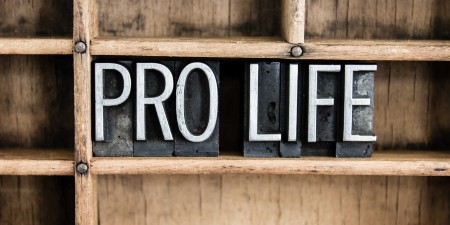 Dear readers, Catholic Online was de-platformed by Shopify for our pro-life beliefs. They shut down our Catholic Online, Catholic Online School, Prayer Candles, and Catholic Online Learning Resources—essential faith tools serving over 1.4 million students and millions of families worldwide. Our founders, now in their 70's, just gave their entire life savings to protect this mission. But fewer than 2% of readers donate. If everyone gave just $5, the cost of a coffee, we could rebuild stronger and keep Catholic education free for all. Stand with us in faith. Thank you. Help Now >
Dear readers, Catholic Online was de-platformed by Shopify for our pro-life beliefs. They shut down our Catholic Online, Catholic Online School, Prayer Candles, and Catholic Online Learning Resources—essential faith tools serving over 1.4 million students and millions of families worldwide. Our founders, now in their 70's, just gave their entire life savings to protect this mission. But fewer than 2% of readers donate. If everyone gave just $5, the cost of a coffee, we could rebuild stronger and keep Catholic education free for all. Stand with us in faith. Thank you. Help Now >
Supreme Court rules your DNA is like a fingerprint, can be collected upon arrest
FREE Catholic Classes
In a 5 to 4 decision, the Supreme Court ruled on Monday that police may obtain DNA samples from people arrested for serious crimes.
Highlights
Catholic Online (https://www.catholic.org)
6/3/2013 (1 decade ago)
Published in Politics & Policy
Keywords: DNA, supreme court, collection, privacy
WASHINGTON DC (Catholic Online) - Justice Anthony M. Kennedy wrote for the majority, "When officers make an arrest supported by probable cause to hold for a serious offense and they bring the suspect to the station to be detained in custody... Taking and analyzing a cheek swab of the arrestee's D.N.A. is, like fingerprinting and photographing, a legitimate police booking procedure that is reasonable under the Fourth Amendment."
Kennedy was joined by Justices Roberts, Thomas, Breyer, and Alito. Justice Scalia joined Ginsburg, Sotomayor, and Kagan in dissent. Scalia said, "Make no mistake about it: because of today's decision, your D.N.A. can be taken and entered into a national database if you are ever arrested, rightly or wrongly, and for whatever reason."
The case came following the collection of DNA in 2009 from Alonzo Jay king Jr. after his arrest on assault charges in Maryland. After analysis, investigators learned that his DNA profile matched an unsolved 2003 rape case, and he was subsequently convicted for that crime.
His lawyers appealed the conviction saying that a state law authorizing this collection violated the Fourth Amendment's protection against unreasonable search and seizure. The Maryland Court of Appeals agreed with the defense, but the state appealed to the Supreme Court.
Now the Supreme Court has ruled that taking DNA swabs is akin to taking fingerprints and photographs during the booking process and may be done.
Naturally, there are privacy concerns associated with this very intimate form of data collection. In the near future, it is expected that as more DNA is collected from suspects, authorities will begin running these profiles against evidence in cold cases.
This could result in solving many more criminal cases in the future since criminals who remain un-caught and unrehabilitated often reoffend.
---
'Help Give every Student and Teacher FREE resources for a world-class Moral Catholic Education'
Copyright 2021 - Distributed by Catholic Online
Join the Movement
When you sign up below, you don't just join an email list - you're joining an entire movement for Free world class Catholic education.
-

-
Mysteries of the Rosary
-
St. Faustina Kowalska
-
Litany of the Blessed Virgin Mary
-
Saint of the Day for Wednesday, Oct 4th, 2023
-
Popular Saints
-
St. Francis of Assisi
-
Bible
-
Female / Women Saints
-
7 Morning Prayers you need to get your day started with God
-
Litany of the Blessed Virgin Mary
Introducing "Journey with the Messiah" - A Revolutionary Way to Experience the Bible
-

A Future for Life: Introducing the Winners of the Priests for Life Pro-Life Essay Contest
-

Reflections on Pope Francis' 2025 World Day of Peace message
-
Exposing the Dark Reality of Sex Trafficking
-
Trump's Bold Geopolitical Moves: A Call for Reflection from a Catholic Perspective
Daily Catholic
 Daily Readings for Friday, January 10, 2025
Daily Readings for Friday, January 10, 2025 St. William of Bourges: Saint of the Day for Friday, January 10, 2025
St. William of Bourges: Saint of the Day for Friday, January 10, 2025 Prayer for a Blessing on the New Year: Prayer of the Day for Tuesday, December 31, 2024
Prayer for a Blessing on the New Year: Prayer of the Day for Tuesday, December 31, 2024- Daily Readings for Thursday, January 09, 2025
- St. Adrian, Abbot: Saint of the Day for Thursday, January 09, 2025
- St. Theresa of the Child Jesus: Prayer of the Day for Monday, December 30, 2024
![]()
Copyright 2024 Catholic Online. All materials contained on this site, whether written, audible or visual are the exclusive property of Catholic Online and are protected under U.S. and International copyright laws, © Copyright 2024 Catholic Online. Any unauthorized use, without prior written consent of Catholic Online is strictly forbidden and prohibited.
Catholic Online is a Project of Your Catholic Voice Foundation, a Not-for-Profit Corporation. Your Catholic Voice Foundation has been granted a recognition of tax exemption under Section 501(c)(3) of the Internal Revenue Code. Federal Tax Identification Number: 81-0596847. Your gift is tax-deductible as allowed by law.





 Daily Readings for Friday, January 10, 2025
Daily Readings for Friday, January 10, 2025 St. William of Bourges: Saint of the Day for Friday, January 10, 2025
St. William of Bourges: Saint of the Day for Friday, January 10, 2025 Prayer for a Blessing on the New Year: Prayer of the Day for Tuesday, December 31, 2024
Prayer for a Blessing on the New Year: Prayer of the Day for Tuesday, December 31, 2024

